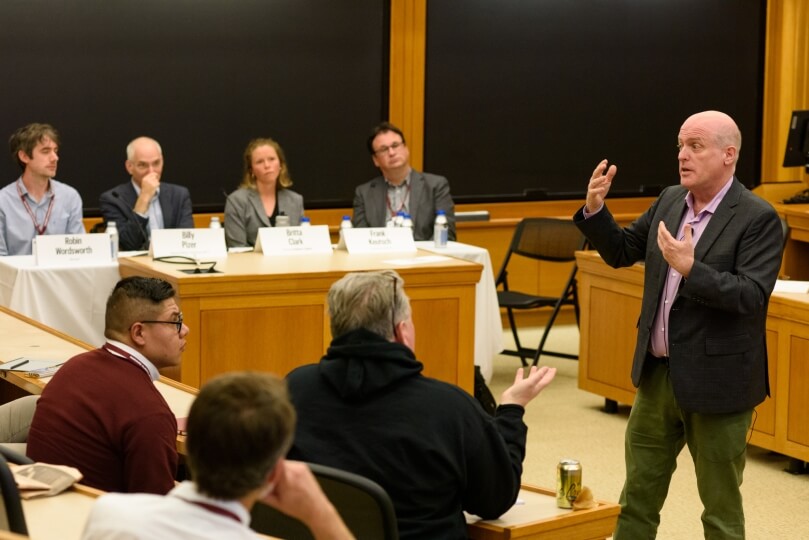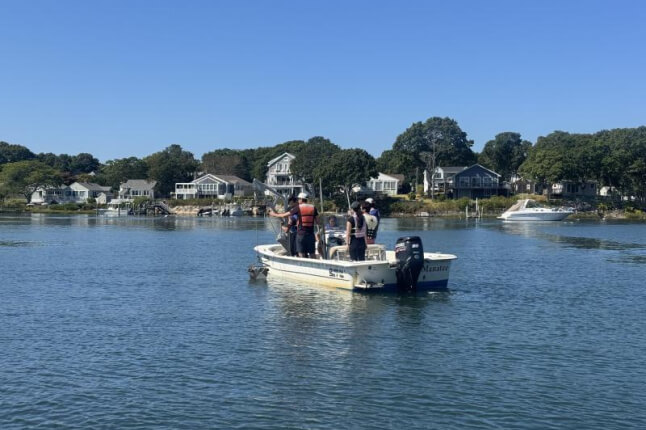News
SEAS faculty Robin Wordsworth, Britta Clark and Frank Keutsch at a Harvard Climate Action Week panel on solar geoengineering (Salata Institute for Climate and Sustainability)
Long considered taboo, the idea that humans might deliberately reflect the sun’s rays to cool the planet is today gaining mainstream attention. As humanity’s efforts to decarbonize continue to fall short, and the effects of climate change accelerate, scientific and policy circles are increasingly discussing solar geoengineering as a last-ditch effort to protect Earth from dangerous warming.
At a June 10 discussion held during Harvard Climate Action Week, leading scholars from atmospheric chemistry, climate physics, economics and philosophy, including several faculty at the Harvard John A. Paulson School of Engineering and Applied Sciences (SEAS) discussed our current understanding of solar geoengineering, highlighting areas of uncertainty, and identifying ways to move forward on research while the debate intensifies on its possible deployment.
“I’ve done a lot of work building complex models. And that makes me inherently distrustful of models,” said Robin Wordsworth, Gordon McKay Professor of Environmental and Planetary Science at SEAS. What’s needed, he argued, are “larger experiments because our best models are only ever as good as the laboratory experiments that constrain them.”
Researchers investigating solar geoengineering often look at volcanic activity to study the cooling effect of the sulfate aerosols released into the stratosphere during eruptions. But sulfates produce well-known side effects: to human health, and to the ozone layer.
“Sulfur is the devil we know,” said Frank Keutsch, Stonington Professor of Engineering and Atmospheric Science, who believes scientists must investigate “alternative materials that may have fewer side effects.”
Cutting-edge science delivered direct to your inbox.
Join the Harvard SEAS mailing list.


